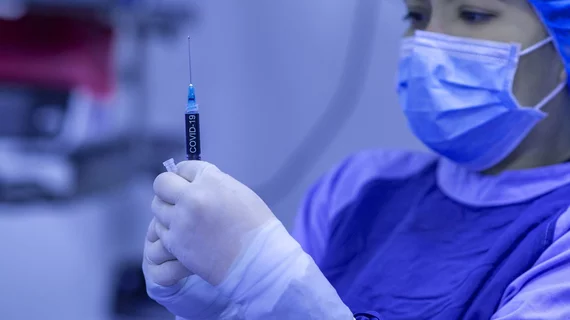A surprising number of healthcare pros are skeptical of the COVID-19 vaccine
About 4 in 10 healthcare workers haven’t gotten a COVID-19 vaccine yet, and more than 1 in 3 say they aren’t confident the vaccines have been thoroughly tested for safety and effectiveness, according to a new poll from The Washington Post and the Kaiser Family Foundation.
The findings underscore the uphill challenge when it comes to the nation’s vaccination rollout, as vaccination has been considered one of the top methods to combat the COVID-19 pandemic. More than 127 million vaccines have been administered in the U.S. as of March 22, according to the Centers for Disease Control and Prevention.
The survey queried more than 1,300 front line healthcare workers between February and March, finding just over half (52%) had received at least their first dose of a COVID-19 vaccine at the time. Other findings were more worrisome for vaccination efforts: 3 in 10 said they weren’t sure they were going to get a vaccine, while 1 in 6 said they would quit if their employer forced them to get vaccinated. By comparison, 70% of Americans believe healthcare workers who work with patients should be required to get vaccinated.
The survey also found disparities across health care, with Black healthcare workers reporting lower vaccination rates, as well as those in lower-paying jobs in the field, such as home health aides. Unsurprisingly, politics also played a role in vaccination rates and opinions, with Republicans more likely to express concern over vaccines and Democrats reporting higher vaccination rates.
Education levels also influence vaccination rates, with those with postgraduate degrees reporting higher rates, compared to those with bachelor’s degrees, who reported higher rates of vaccination than those with associate’s degrees.
Income has played a significant role as well.
“The income disparity among health-care workers is clear,” The Washington Post reported. “Nearly 7 in 10 healthcare workers with household incomes of $90,000 and above said they had been vaccinated. But that dropped to about half of those with incomes between $40,000 and $90,000 and to roughly 3 in 10 of those with incomes even lower than that.”
Among the healthcare workers who said they didn’t plan to get vaccinated or were on the fence, about 8 in 10 said they were concerned about side effects and wanted to wait and see how the vaccines work for other people first.
“About two-thirds of those unvaccinated and without plans to get vaccinated said they did not trust the government to ensure the safety of the coronavirus vaccines,” The Washington Post reported.

